When we like a webpage, we either share it or bookmark it for future reading. However, there are times when we may need a webpage for offline viewing, research, or printing later. Fortunately, it’s very easy to save a webpage as a PDF in all desktop and mobile web browsers like Google Chrome, Firefox, Microsoft Edge, Opera, and Safari. Below, we’ll check all possible ways to convert a webpage to PDF on Windows, macOS, iOS, and Android.
In Google Chrome (Windows & macOS)
If you are a Windows or macOS user, below are the instructions for saving a full webpage as a PDF in different browsers. If you select the “Save as…” option from the context menu of a web browser, the web page will be saved in HTML format. Use the Print option from the browser menu to save a website page as a PDF.
Using the Print Option
- Click the 3-Dot menu icon on the top-right corner of the browser window and select the Print option. Alternatively, you can use the Ctrl+P (Windows) or cmd+P (macOS) shortcut to launch the Print menu. You can also select the Print option on any web browser from the right-click Context Menu.
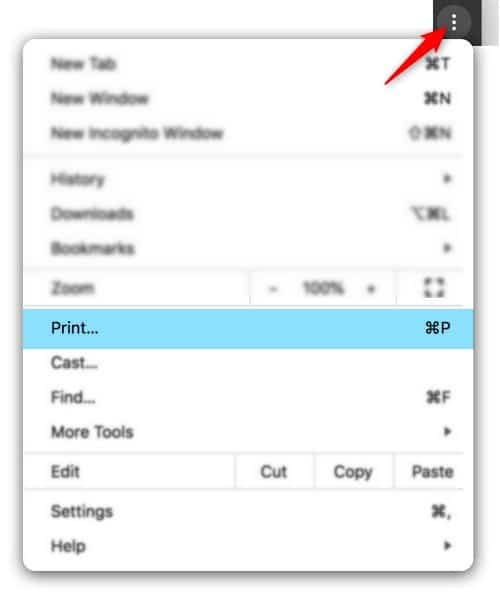
- When the Print menu pop-up window appears, click the drop-down menu icon next to Destination and select Save as PDF. If you want the webpage PDF to include the header and footer and background graphics too, click More Settings and select the relevant Options.
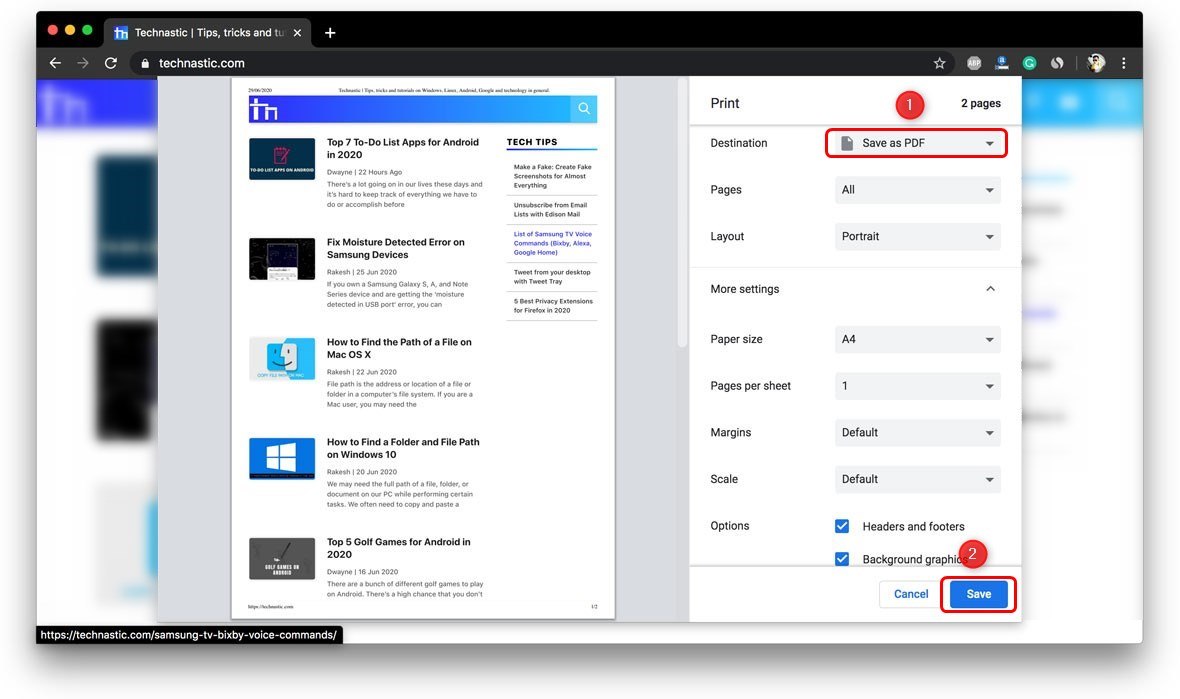
- Now, click the Save button.
- Finally, select the destination where you want to save the webpage PDF file and click the Save option.
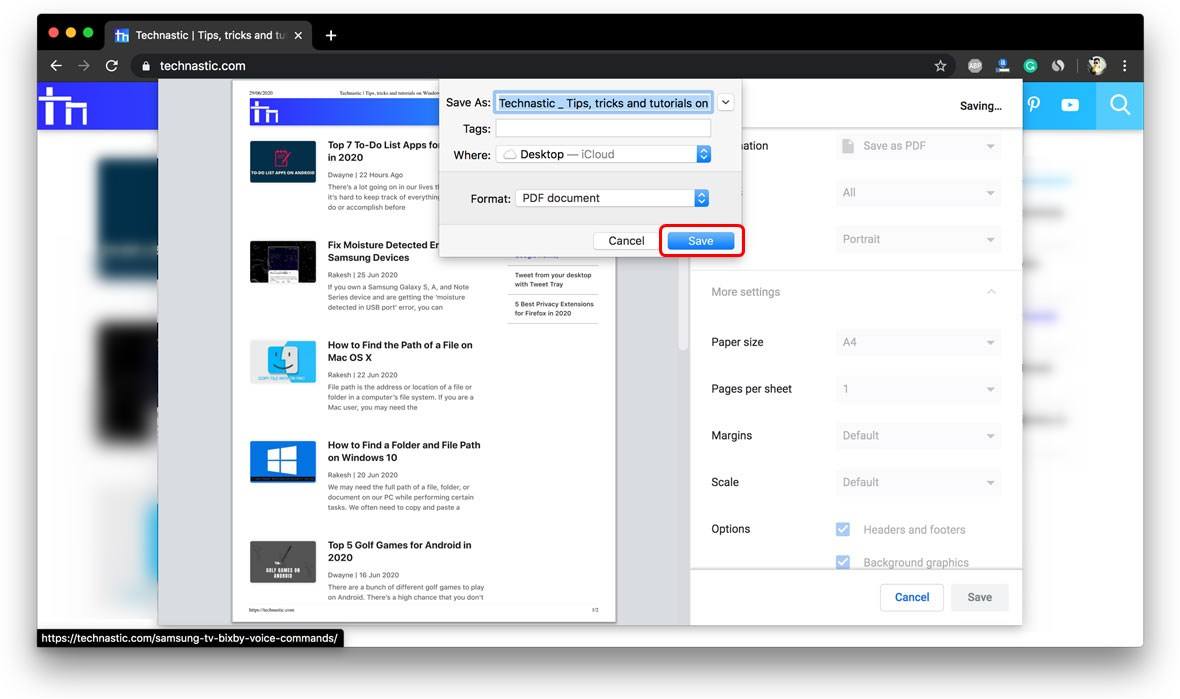
Using Chrome Extensions
If you don’t like the webpage layout using Chrome’s built-in option, or Chrome’s Save as PDF doesn’t work, you can try an extension from the Chrome Web Store. Having tried out a dozen screenshot extensions, I found some great extensions like FireShot and Full Page Screen Capture that support full webpage capture in PDF, JPG, and PNG formats.
In Mozilla Firefox
Firefox doesn’t have a native PDF printer. However, it still lets you save a webpage using the Microsoft Print to PDF setup on Windows. Let’s see how we can make Firefox print webpages to PDF like Chrome. This method works on Internet Explorer as well.
- Click the Hamburger menu icon at the top-right corner of the browser window. Then click on the Print option.
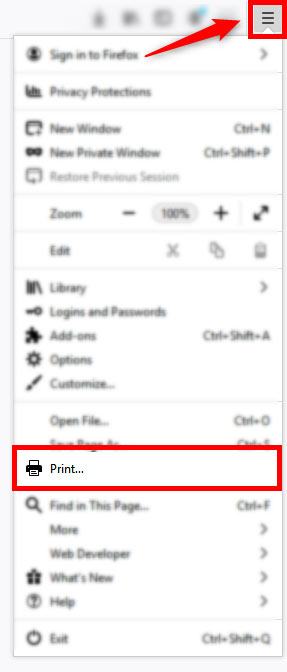
- Select the Page Setup option to customize the page layout and click the Print option.

- Now, select Microsoft Print to PDF under Select Printer.
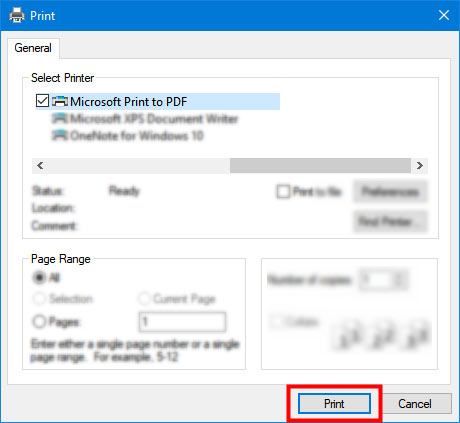
- Now, click the Print button and save the PDF by assigning a name to the file.
In Firefox for Mac
If you happen to be a macOS user and want to save webpages as PDFs in Firefox for Mac, follow these steps:
- Click the Hamburger menu icon and select the Print option.
- A window with print options will pop up. Click PDF and select Save as PDF.

- You should now be able to save the full webpage as a PDF.
You can also use a Firefox extension called FireShot to save a webpage as an image or PDF with links.
In Safari on Mac
If you use Safari, here is how you can save a webpage as a PDF on a Mac in two ways. To use the Safari browser like a pro, you must not miss our huge collection of Mac keyboard shortcuts for Safari.
Using Export as PDF Option
- Click File on the menu bar and select the Export as PDF option.
- Save the webpage to your computer.
Using Print Option
The webpage PDF I saved using the Export as PDF feature in Safari didn’t look good enough. I recommend saving a webpage as a PDF in Safari on Mac using the Print option. Before you proceed, however, you should also read my tutorial describing the 3 ways to take a screenshot on Mac.
- While viewing a webpage in Safari, click on File > Print. You can also use the Cmd+P shortcut on the keyboard to launch the print options.
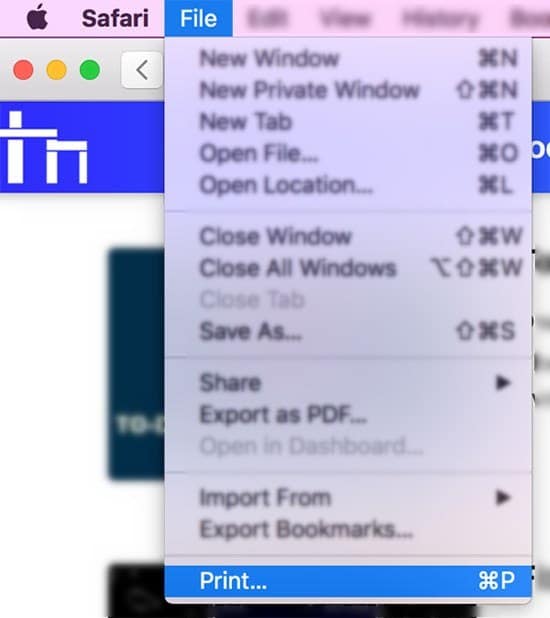
- When the print options window opens, click PDF and select the Save as PDF option.
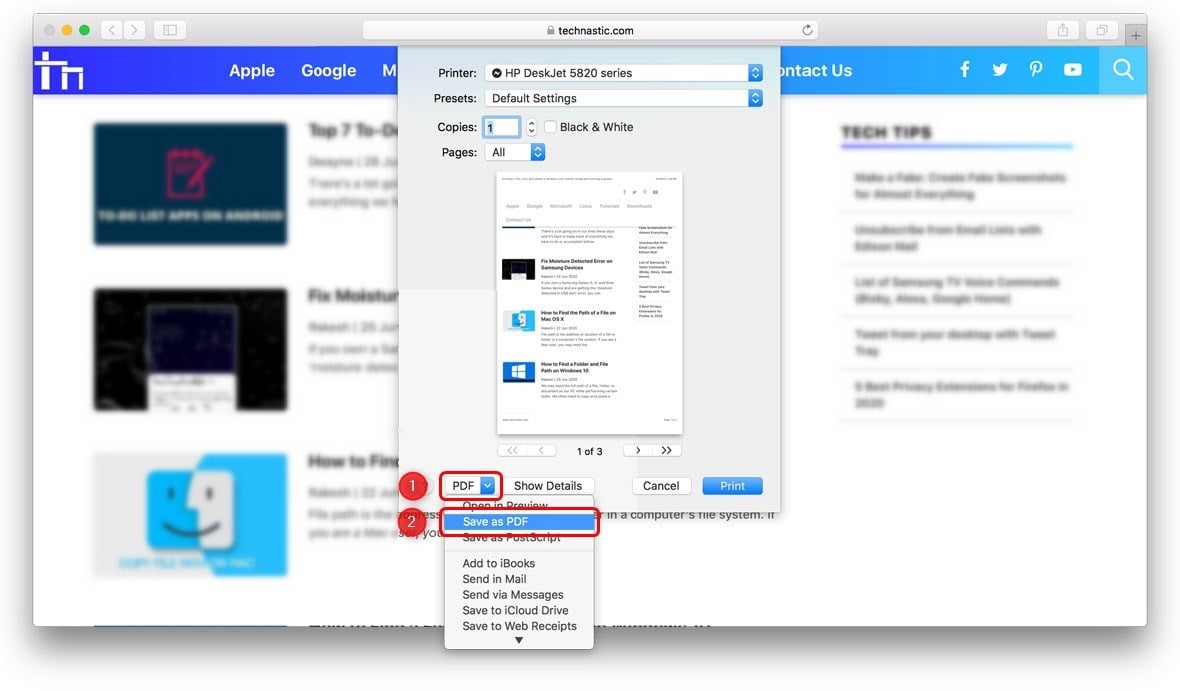
- All you need to do now is save the webpage PDF to your desired location on your Mac.
Should you wish to share or upload this file later, you can do so quickly by copying the file path on your Mac.
In Microsoft Edge
Since Microsoft Edge is a Chromium-based web browser, the steps to convert a webpage into a PDF are pretty much the same as Chrome. You should also try these best non-Chromium web browsers.
- Click on the 3-dot menu icon or perform a right-click to access the browser menu and select the Print option. You can also use the Ctrl+P keyboard shortcut to launch the Print menu directly.
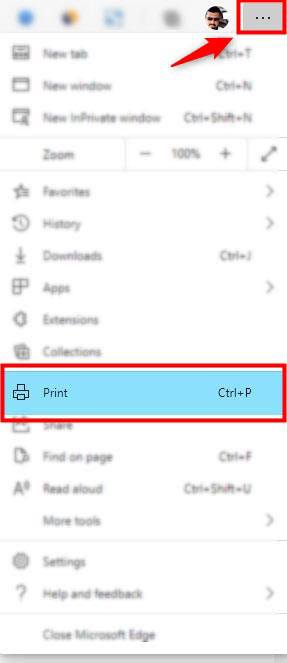
- Now, click the down arrow icon under Printer, select Save as PDF, and click the Save button.
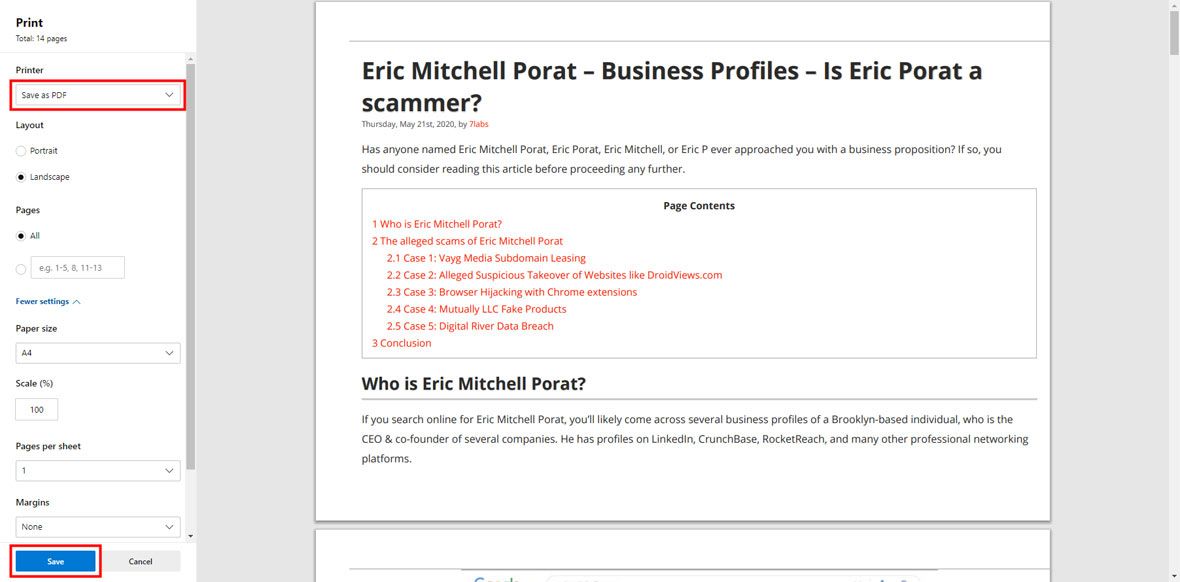
- Save the webpage PDF to your desired location. Done!
In Opera (Windows & macOS)
When it comes to saving webpages as PDFs, Opera works as a better online web document-to-PDF converter than other web browsers. Opera lets you convert a webpage to PDF in 2 ways.
Using the ‘Save as PDF’ Option
- While in the Opera browser, perform a right-click to bring up the Context Menu and click on the Save As PDF… option.
- Save the PDF file to your computer.
Using Print Option
- Right-click the mouse to open the browser Context Menu and select the Print… option.
- When the print options window is opened, click the down arrow next to Destination and select Save as PDF from the drop-down list.

- If you want to customize the PDF page layout, click More options and make the required changes.
- Now, click the Save button and select the destination drive where you want to save the webpage PDF.
That’s it! You have successfully saved the webpage to your Windows or Mac computer as a PDF.
Read Next: How to Bold Text on X and Use Fancy Text

